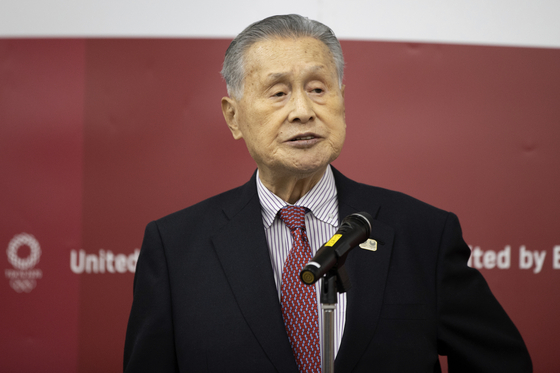by Ettore Jorio *
–
 – –
– –
The Central Control Section of the Court of Auditors on the management of state administrations adopted on 12 January 2021 (rapporteur Oliviero), and therefore in times of full Covid hardship, a resolution (No. 2/2021 / G) with which it put his finger in the wound of a health that has been trudging for some time. Raise the yellow card on a healthy system in complete difficulty in transforming, uniformly, investments and projects into hospital structures that can be enjoyed by the community, on an unjustified asymmetry in guaranteeing health for citizens, on the repeated under-utilization of human and organizational resources of the health service national and on waste and rivers of public money conveyed to the private sector. Therefore, he underlines the slowness, the inadequacy, the inefficiency, the ineffectiveness and the untimeliness that have characterized Italian healthcare in the development of investments in terms of implementation as well as the adoption of useful measures to tackle the pandemic, which has caused as many dead as an average provincial capital city has.
A difficult and different translation of the investments made in functioning structures
From the report of the Judge for controls on “interventions for the reorganization and requalification of health care in large urban centers”, a country emerges that is unable to do its “job” as a guarantor of health protection at all well. Which, consequently, has become the holder of some too many responsibilities in dealing with the aggression of Sars-Cov-2, as well as in fulfilling the ordinary activities that should have brought to a successful conclusion the extraordinary plans, precisely, implementation of planned interventions to reorganize and upgrade the national hospital network.
A worrying cross-section emerges from the analysis of the values of use of extraordinary resources, made available in the seven-year period 1999/2006, aimed at standardizing the provision of hospital care levels across the country. Not only regarding the difference in implementation between the initiatives implemented in the large areas of the center-south and those of the north – with a strong negative balance of the former compared to the latter and with a gap in production employment exceeding 1.2 billion euros on the amount allocated , which reports a loss of 44 works out of 302 financed (of which only 206 completed and 19 not even started) – but also characterized by the inadequacy of the building planning and technological implementation of the period essential to better face the fight against the foreseeable further viral attacks that the future holds for us.
As for technological modernization, a painful negative differential was detected between the southern regions compared to those of the north in relation – just to give an example – to robotic surgery platforms and pulmonary ventilators, the shortage of which caused severe discomfort in the ‘effectively address the fight against pandemics. A negative result, this underlined in the careful analysis of the accounting judge, which contributed to the determination of the high price that the national community paid, in a year of pandemic attack, in terms of deaths and those infected by Covid 19, in relation to which it is difficult to estimate the eventual invalidating follow-up, as this also affects the social security system, even if it is non-contributory.
Also worrying are the differences found in the progress of the works in progress and the discrepancies highlighted in the use of resources at the various regional levels, as well as a lack of loyal collaboration in the management between the various institutional levels of the ad hoc funds of origin. state, especially referring to the need to interchange, at hospital level, the use of specifically technical personnel. A vulnus determined by the abdication of the State to its institutional functions, given that it has limited itself – in doing so – to playing the role of “mere financier” of the regional system, almost as a simple provider of the allocated sums, rather than exercising priority unavoidable tasks of coordination, supervision and control functional to stimulate the Regions to quickly bring to a successful conclusion the programs in the best conditions of implementation.
Encourage the public and the local bureaucracy
The Central Control Section – in addition to intervening, in terms of awareness, on the reduction of waiting lists and coordination for the evaluation of the methods to be introduced in relation to the most advanced health technologies (HTA) – has gone down heavily on the need to ensure correctness and truthfulness of the accounts of the national health service, through an accurate certification of the financial statements. This also in the probable awareness that in the post-Covid19 different Regions will naturally be subjected and therefore called to comply with repayment plans, given the consequent increase in operating costs.
In this regard, he urged the introduction of a new discipline, implementing the current one, relating to the tasks assigned to the Agenas of technical-accounting assistance to the Regions, precisely, in the repayment plan and to the bodies making up the regional systems of health. This is in order to avoid the unjustified expenditure incurred up to now to purchase supplies of services in this sense from private individuals.
To this end, the Court of Auditors has stigmatized – possibly with a view to encouraging the quality of the institutional services rendered by the internal company and regional auditors, authentic guardians, by law and by contract, of the preparation of the consolidated financial statements including that of health – what has happened on the subject since 2007. A particularity, which I have also had the opportunity to highlight on various occasions and locations, which occurred following the stipulation, which has become serial, of the provision of accounting advisor services, originally perfected at the time with the consulting company Kpmg Spa, at the time indicated by the Ministry of Finance without resorting to any competitive comparative procedure. A contractual activity subsequently repeated, with recourse to public tender, in many ways very limited in terms of access conditions, with the same company in a temporary grouping of companies (RTI) concluded in specific procedural editions in the years 2011, 2014 and 2018 for a total value of 85 million euros.
On closer inspection, an event that has, among other things, entailed millionaire operating costs in the face of services not provided everywhere with methods and products that are not sufficiently adequate to the needs, especially below the natural expectations that were to reach the certification of the corresponding financial statements.
Calabria which hopefully (finally) at the turning point
What happened in Calabria is symptomatic and demonstrative of the reasons underlying the relief represented, regarding delays in the construction of hospitals, in the Report of the Court of Auditors.
Hospitals financed and not even started, with delays of more than a decade despite the millionaire money in your pocket. So, Gioia Tauro, Vibo Valentia and the Sibaritide are still dry. Who knows for how long. Not to mention that of Catanzaro, now put aside, and that of Cosenza, until now only idealized, despite the need.
Hence, the Calabria decree 1 (Legislative Decree 35/2019) against which, with regard to hospital buildings, the Court of Auditors states that «in order to comply with the provisions of art. 6, paragraph 3, of Legislative Decree 30 April 2019, n. 35, the region, with the decree of can 5 of 7 January 2020, approved the “Extraordinary three-year plan for healthcare construction and technological adaptation of the emergency network, the hospital network and the territorial network” ». A program against which the Ministry of Health, with a note dated September 2020, has nevertheless identified some critical aspects, in relation to which it has requested further information. More precisely, he claimed specific indications on the framework of the implementation as a whole in order to assess the consistency and usefulness of the planned investments.
In this regard, the newly appointed ad acta commissioner, among the countless obligations put in place by Legislative Decree 150/2020, converted into law 181/2020, is called to dismiss, by the end of February, his own extraordinary three-year plan for healthcare construction and adaptation technology of the emergency network, the hospital network and the regional network. An act from which Calabria will demand structural justice and, therefore, disbursement that the prefect Guido Longo – together with the general director Francesco Bevere and with the sure approval of Minister Speranza – will be able to ensure, before the time assigned through a correct programming of interventions, which will then ensure the necessary speed of implementation. As for the aforementioned hospitals, in search of construction, he will ensure that the related projects must be adapted with the newly introduced anti-seismic legislation and Ministerial Decree 70/2015, which will require the review of the aforementioned hospitals designed.
* Unical teacher
–

